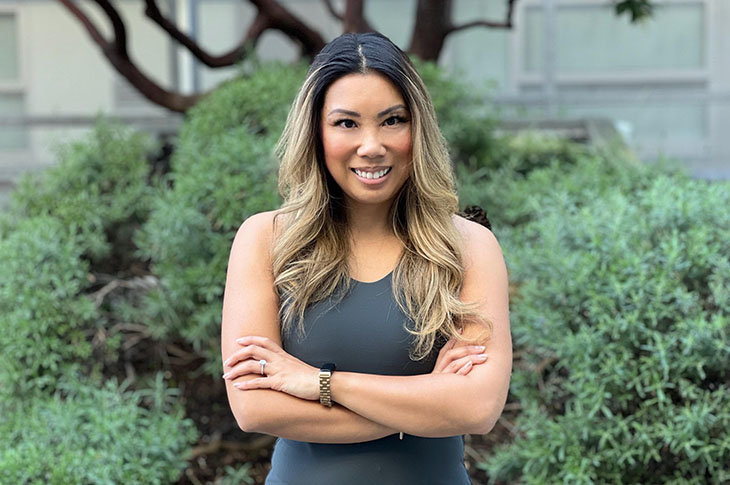
I’ve struggled with insomnia since high school. I had trouble both falling asleep and staying asleep and then on the weekends, I’d sometimes sleep past noon. It was almost like I was becoming nocturnal. In college, there was peer pressure to ignore the need for sleep altogether. It was a culture of slamming Redbulls, pulling all-nighters before deadlines, and then going out to a party. It was the attitude that you’ll sleep when you’re dead.
When I was out of college and starting a career, I took the issue more seriously. I was sometimes having migraines and realizing more and more that the lack of sleep was affecting my mood and relationships because I’d be cranky. I just wasn’t at my best.
At one point, I went to a sleep doctor and got a prescription. The medication really knocked me out. I decided I didn’t want to be dependent on a drug for something so crucial to my physical and mental health.
I began a years-long journey to improve my sleep quality, starting by reading about sleep and researching the interventions I could try. Over the years, I’ve probably made over two dozen changes to my sleep habits. I put up black-out blinds to limit light exposure and bought glasses that block out blue light from screens in the evening. I’ve gotten custom earplugs to reduce noise. I have bamboo cooling sheets and a weighted blanket. I also have a sleep routine to relax and meditate before bed. The list goes on.
Eventually I began to have better sleep patterns but my sleep remained something of a mystery. Even if you are going to sleep and not waking up at night, it is hard to know the quality of your sleep. That’s why I was excited when I learned that my Inspire 2 could give me insights into what was happening while I was unconscious.
Every morning, I check my Sleep Score and look at the Sleep Stages chart to see if I was awake at all and how much REM and deep sleep I got. When I get a good score, which for me is in the mid-80s, I know I’m going to be at the top of my game at work. And when I get to my workout, which is boxing circuit training, I know I’m going to be able to push myself and get the most out of it.
When my score drops, I try not to let it predict how well my day will go. But it does give me a chance to think back about the previous day to consider what I might have done differently. I think about the foods I ate and the timing of when I exercised. I love Indonesian food, for example, but now I know to avoid the tea leaf salad.
I’m in my 30s, and I’ve been on this sleep-improvement journey since my mid-20s. I can now be confident that I can get to sleep and stay asleep. But I’m not going to let up because sleep patterns change as we age. Recently, I’ve noticed that I’m waking up on the early side. I’ll keep relying on the data from my Fitbit to continue to improve.
As told to Ethan Watters
This information is for educational purposes only and is not intended as a substitute for medical diagnosis or treatment. You should not use this information to diagnose or treat a health problem or condition. Always check with your doctor before changing your diet, altering your sleep habits, taking supplements, or starting a new fitness routine.
If you have questions about a Fitbit tracker, product availability, or the status of your order, contact our Support Team or search the Fitbit Community for answers.
Please note: Comments are moderated and may not appear immediately after submission.